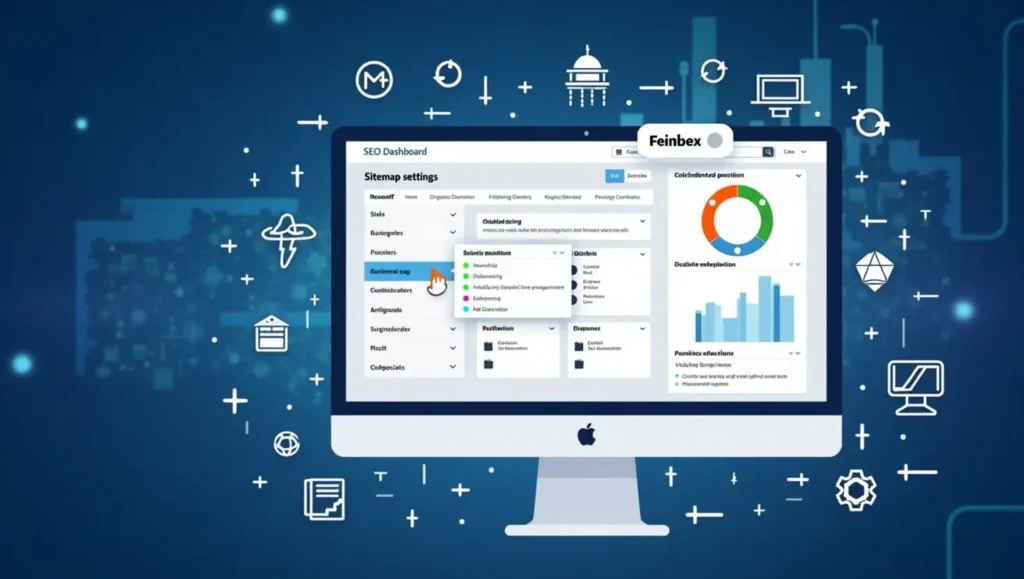Keyword research and SERP (Search Engine Results Page) analysis are essential for any successful SEO strategy. Identifying the right keywords and understanding competitor rankings can significantly impact your organic search performance. While many tools are available for these tasks, Python provides a powerful, flexible, and cost-effective solution.
In this blog, we’ll explore how Python can enhance your keyword research and SERP analysis. By automating data extraction, analyzing search trends, and visualizing keyword performance, Python simplifies complex SEO processes. Whether you’re tracking competitor keywords or uncovering high-ranking opportunities, Python enables efficient keyword research and actionable insights.
With the right Python scripts, SEO professionals can streamline workflows and improve decision-making. From scraping search engine results to analyzing ranking patterns, Python empowers users to optimize their SEO strategies. Whether you’re a beginner or an experienced coder, this guide will provide practical examples to help you master keyword research and SERP analysis.
By leveraging Python for SEO, you can unlock valuable data insights, automate tedious tasks, and gain a competitive edge in search rankings.
Table of Contents
ToggleWhy Use Python for Keyword Research & SERP Analysis?
Python has become a go-to language for SEO professionals, and for good reason. Here’s why it’s a game-changer:
- Automation: Python can automate repetitive tasks like scraping SERP data or fetching keyword suggestions, saving you hours of manual work.
- Data Processing: Libraries like Pandas and NumPy make it easy to handle and analyze large datasets.
- Scalability: Whether you’re analyzing 10 keywords or 10,000, Python can handle it efficiently.
- Integration: Python seamlessly integrates with APIs like Google Search Console, Ahrefs, and SEMrush, giving you access to comprehensive data.
By leveraging Python, you can gain deeper insights into keyword trends, competitor strategies, and search intent—all while saving time and resources.
Extracting Keyword Suggestions with Python
Keyword research starts with identifying the right terms to target. Python can help you extract keyword suggestions from sources like Google Autocomplete, People Also Ask, and related searches.
Example: Fetching Google Autocomplete Suggestions
Google Autocomplete is a goldmine for long-tail keywords. Here’s how you can use Python to fetch these suggestions:
python
Copy
import requests
import json
def get_autocomplete_suggestions(query):
url = f”http://suggestqueries.google.com/complete/search?client=firefox&q={query}”
response = requests.get(url)
suggestions = json.loads(response.text)[1]
return suggestions
keyword = “technical SEO with Python”
suggestions = get_autocomplete_suggestions(keyword)
print(suggestions)
Key Benefit: This script helps you identify relevant long-tail keywords that users are actively searching for, enabling you to create content that aligns with search intent.
Performing SERP Analysis with Python
Analyzing SERP data is crucial for understanding competition, ranking factors, and search intent. Python can scrape SERP data using libraries like BeautifulSoup and Scrapy.
Example: Extracting SERP Titles and URLs
Here’s how you can extract titles and URLs from Google search results:
python
Copy
from bs4 import BeautifulSoup
import requests
def get_serp_results(query):
headers = {“User-Agent”: “Mozilla/5.0”}
response = requests.get(f”https://www.google.com/search?q={query}”, headers=headers)
soup = BeautifulSoup(response.text, “html.parser”)
results = []
for g in soup.find_all(‘div’, class_=’tF2Cxc’):
title = g.find(‘h3’).text if g.find(‘h3’) else “”
link = g.find(‘a’)[‘href’] if g.find(‘a’) else “”
results.append((title, link))
return results
serp_data = get_serp_results(“Python for SEO automation”)
for title, link in serp_data:
print(f”Title: {title}\nURL: {link}\n”)
Key Benefit: This script provides insights into which pages are ranking for your target keywords, helping you analyze competitor content and identify gaps in your strategy.
Analyzing Keyword Rankings with Google Search Console API
Monitoring keyword performance is crucial for improving your SEO approach. Python can pull data from Google Search Console to monitor clicks, impressions, and rankings.
Example: Fetching Keyword Clicks and Impressions
Here’s how you can use Python to fetch keyword data from Google Search Console:
python
Copy
from googleapiclient.discovery import build
def get_gsc_data(site_url, creds):
service = build(‘searchconsole’, ‘v1’, credentials=creds)
request = {
‘startDate’: ‘2024-01-01’,
‘endDate’: ‘2024-02-01’,
‘dimensions’: [‘query’],
‘rowLimit’: 10
}
response = service.searchanalytics().query(siteUrl=site_url, body=request).execute()
return response[‘rows’]
# Example call: get_gsc_data(‘https://example.com’, credentials)
Key Benefit: This script helps you track keyword performance over time, identify high-performing keywords, and optimize underperforming ones.
Visualizing Keyword Data with Python
Data visualization is a powerful way to uncover trends and insights. Python’s matplotlib and seaborn libraries make it easy to create visualizations that enhance your understanding of keyword performance.
Example: Visualizing Keyword Performance
Here’s how you can create a bar chart to visualize keyword clicks:
python
Copy
import matplotlib.pyplot as plt
import seaborn as sns
def plot_keyword_performance(data):
queries = [row[‘keys’][0] for row in data]
clicks = [row[‘clicks’] for row in data]
plt.figure(figsize=(10, 5))
sns.barplot(x=clicks, y=queries, palette=”Blues_r”)
plt.xlabel(“Clicks”)
plt.ylabel(“Keywords”)
plt.title(“Keyword Performance Analysis”)
plt.show()
# Example call: plot_keyword_performance(gsc_data)
Key Benefit: Visualizations like this help you quickly identify top-performing keywords and opportunities for improvement.
Conclusion
Python is an invaluable tool for keyword research and SERP analysis. By automating data extraction, analyzing search rankings, and visualizing performance, Python empowers SEO professionals to make data-driven decisions that drive results.
Whether you’re fetching keyword suggestions, scraping SERP data, or integrating with Google Search Console, Python offers endless possibilities for enhancing your SEO strategy.
Next Steps: Start implementing these Python scripts, experiment with different datasets, and refine your keyword strategy for better rankings!



